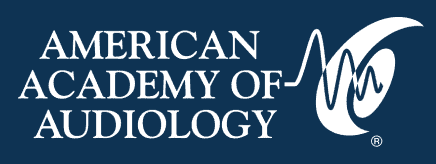Most of us have heard the term “May is Better Hearing Month” and have probably participated in the goals of this event by doing a variety of community centered activities or campaigns. This annual occurrence first began in 1927 when ASHA created an idea of National Hearing Week. This was later changed to Better Hearing Month in 1958 and ultimately shifted to the more commonly known title of Better Hearing and Speech Month in 1972. We as audiologists are continually encouraged to align with our speech-language pathology colleagues in promoting excellent communication for all, and this is especially true during the month of May.
While public advertisement of this dedicated month is often sparse, it can frequently fall to us to help realize goals during the month of May. In past years, a variety of advocacy and access promotions have taken place at the clinical level, such as free screenings or hearing exams, participation in health fairs, presenting hearing conservation awareness to students in schools and universities or having highlights written up in newsletters. In the 21st century, much of the outreach has shifted to a more digital presence that utilizes social media, podcasts and e-newsletters. No matter how we step up in the month of May, the goals have remained largely the same for nearly a century: raise awareness of the importance for early detection and treatment, promote and advocate for better access to sound for all ages.
As audiologists, the sense of hearing is not just something we address for one month annually. It is the bedrock of our practice and what we do every day. Here are some specific suggestions for actualizing the goals of Better Hearing Month all year long.
- Consider providing captions or transcription for your clinic’s online video content or podcasting. Not all visitors, listeners or viewers have the benefit of hearing correction (yet) and these features will get messages through for individuals who rely heavily on their vision. This makes content more widely inclusive for everyone who visits or listens.
- You can also make your online presence more accessible by designing social media or web content with highly contrasting colors and simple dark fonts. Although the Americans with Disabilities Act (ADA) does not have specific guidelines for web content, a general ADA checklist was created by Rev.com that you can find here. Remember that AAA has a resourceful variety of consumer content that can be linked as well.
- May is a perfect opportunity to include web content or podcasted information about assistive listening devices (ALDs). Have information about assistive listening technologies available in your clinic. Smoke alarms, doorbell alerts, TV streamers, and information about loop systems and Auracasting can benefit hearing impaired individuals and hearing aid users alike. Some clinics provide a display of these items in their offices for a more “hands on” experience. Contact vendors to see if demonstration models are available at low or no cost to you.
- Local talk radio and television are still a great way to reach individuals who have little or no online access. Start contacting stations at least 6-8 weeks in advance so coordination of your coverage is well organized, not rushed at the last minute.
No matter how you or your practice utilize the month of May, the need for advocacy and access is present all year long. It’s never too soon to set up a plan for May and beyond to help realize the goal of effective communication for all.
Recent Posts
Rock the PAC: An Evening of Music, Networking, and Advocacy
This content is an exclusive benefit for American Academy of Audiology members. If you’re a member, log in and you’ll get immediate access. Member Login…
Amplifying Audiology’s Voice: Advocacy Ambassador Program
The Academy is launching the Advocacy Ambassador Program, a grassroots advocacy program to strengthen audiology’s voice nationwide. The program will debut at the AAA Annual…
Cut Through the Noise
Let’s face it…there is a lot going on at AAA 2026, so it can be overwhelming to determine what works best for you and meets your needs. And so,…



